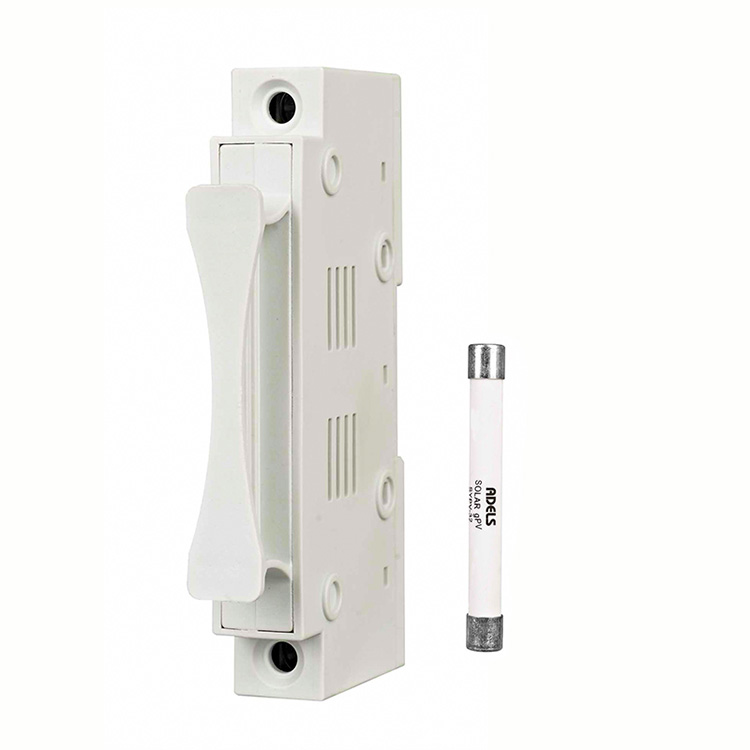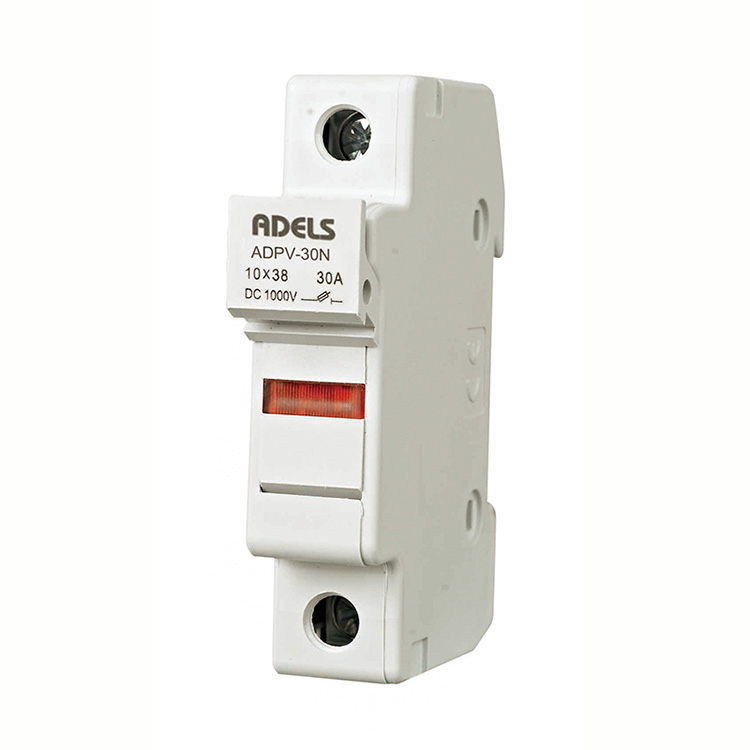DC Fuse Holder
A DC fuse holder is a device used to hold and protect a fuse in a direct current (DC) electrical circuit. Fuses are components designed to break the circuit and prevent excessive current from flowing in the event of a short circuit or overload. A DC fuse holder provides a secure way to insert, repla......
Send Inquiry
Product Description
A DC fuse holder is a device used to hold and protect a fuse in a direct current (DC) electrical circuit. Fuses are components designed to break the circuit and prevent excessive current from flowing in the event of a short circuit or overload. A DC fuse holder provides a secure way to insert, replace, and secure fuses within a circuit, ensuring both safety and functionality.
Here are some key points about DC fuse holders:
Function: The primary function of a DC fuse holder is to hold a fuse in place within a circuit and provide a connection for the electrical current to pass through. If the current exceeds a certain level (due to a short circuit or overload), the fuse will melt or blow, breaking the circuit and preventing damage to the components or wires.
Design: A typical DC fuse holder consists of two parts: a holder or socket and a cap or cover. The holder is designed to securely hold the fuse, while the cap or cover protects the fuse from environmental factors and prevents accidental contact.
Insertion and Replacement: DC fuse holders allow for easy insertion and replacement of fuses. This is important for maintenance, as blown fuses can be quickly replaced without the need for soldering or complex procedures.
Circuit Protection: DC fuse holders are an important safety feature in electrical systems. They protect sensitive equipment and prevent the risk of fire or damage by interrupting the flow of excessive current.
Fuse Ratings: DC fuse holders are designed to accommodate fuses with specific current and voltage ratings. It's important to choose a fuse holder that matches the characteristics of the fuse and the circuit it's intended for.
Types: There are various types of DC fuse holders available, including panel-mounted fuse holders, in-line fuse holders, and fuse blocks with multiple slots for fuses. The type of holder chosen depends on the application and the specific requirements of the circuit.
Materials: DC fuse holders are typically made from materials that provide electrical insulation and mechanical durability. Common materials include plastics, ceramics, and metals.
Applications: DC fuse holders are used in a wide range of applications, including automotive electrical systems, solar power installations, battery storage systems, industrial machinery, electronic equipment, and more.
Fuse Holder Ratings: When selecting a DC fuse holder, consider factors such as the current and voltage ratings of the circuit, the type of fuse being used (fast-blow, slow-blow, etc.), and the environmental conditions of the installation.
In summary, a DC fuse holder is an essential component in electrical systems, providing a safe and accessible way to protect circuits from overcurrent situations. It's crucial to choose the appropriate fuse holder that matches the requirements of the circuit and ensures proper circuit protection.










